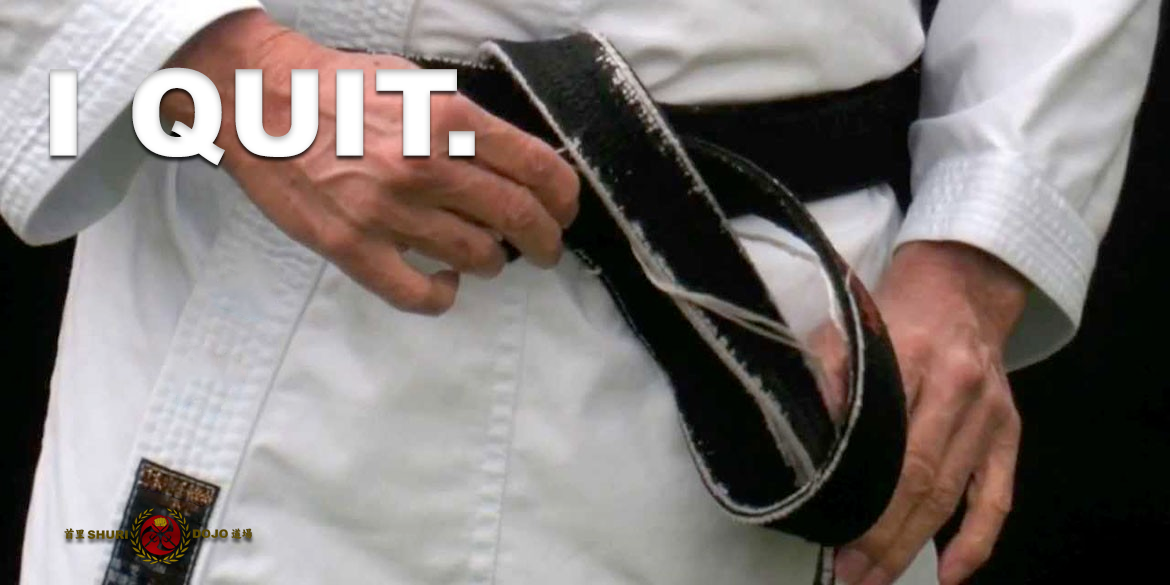
You QUIT karate?
.
It’s a harsh reality that the students you’re teaching right now will not be the same students you’re teaching a year or two from now. Every dojo or school goes through it. They quit.
.
There are many reasons why people quit. The novelty of training may have worn off, or they may be struggling with the commitment required to progress. They may have become frustrated with themselves and believe they are not good enough. Or they may be struggling with injury or illness. For newly promoted black belts, they may feel that they have achieved their goal and don’t want to make the commitment to several more years of training to progress to the next level.
.
There are a myriad of reasons for quitting. However, the way people quit is similar. They will often tell their instructor by text or email after they have made the decision to leave. Some just stop training without even telling their instructor. Others will say they are taking a break, but in our experience few will ever return to training.
.
While students may quit in different ways and for differing reasons, one thing is consistent. They rarely talk to their instructor about the difficulties they are experiencing before they make the decision to quit.
.
How hard is it to be an adult? The reasons for quitting are many. Many quit a dojo or school at some point for reasons, simple to really complicated. Everyone, everywhere has needed to make a change in their life at some point…….. We do understand.
.
The polite thing to do is to inform your instructor and members that you’ve decided to quit. You can be diplomatic and say you might return should circumstances change (which is often true). If circumstances are such that you leaving because something is wrong, a simple; “this dojo isn’t working for me anymore and I need to move on”, should be good enough, no need for a dramatic exit. A simple phone call or even an email will suffice when quitting, if doing so in person makes you feel uncomfortable.
.
Importantly, if you are part of the dojo structure or have defined duties, you should be forthcoming about your departure. Your duties will have to be assigned to someone else.
.
Often, you have made friends at a dojo who want to remain friends even if you are no longer there. A dramatic or “secretive” exit makes that very awkward. In fact, your friends at the dojo will be slightly hurt that you didn’t bother to say goodbye, or thank them for the time working together.
.
I know people are uncomfortable saying goodbye and don’t want to be seen as a quitter, but if you just slink off into the night – you are viewed as a lazy quitter rather than someone that just needs to make a change in their life.
.
If you do decide to quit, try to let your instructor and other students know in person, so they have the opportunity to say goodbye to you. This is particularly important when you have been training for several years. Close relationships are formed through martial arts training and it can be hard on your instructor and fellow students if you quit without saying goodbye. ![]()
![]()
.
.
